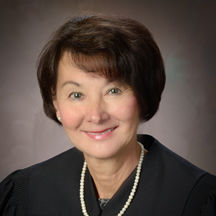Case Review: 16-2192, Roderick C. Dean v. Shulkin

What is the Deep Issue in the Case?
The Board of Veterans Appeals must analyze the legal credibility and probative value of the evidence, accounting for that which is persuasive or unpersuasive, and providing reasons for rejection material evidence favorable to a claimant. Calum v. Brown, 7 Vet. App 498, (1995), aff’d per curium, 78 F.3d (Fed Cir. 1996)
The BVA denied service connection for mental health conditions other than PTSD, holding that because the veteran consistently attributed his psychiatric symptoms to Hurricane Katrina and financial troubles, not military service, testimony that now attributes them to in-service mental health symptomatology 25 years later lacks credibility.
Did the Board of Veterans Appeals err when it failed to address the relevance of the Veteran’s in-service psychiatric disorder, incurred in service, before denying service connection for a mental health condition?
What did the CAVC Decide?
The Veterans Court affirmed the decision of the BVA.
The decision found that the BVA did discuss the relevance of the referenced symptomatology, and did discuss the history of the symptoms and condition, and did concluded that the veteran lacked legal credibility as to certain elements of his claim.
Takeaway Points for VSOs and Veterans Disability Lawyers:
It is rare to find a BVA decision that finds that a witness other than the veteran lacks legal credibility: it is uncanny how the BVA scrutinizes the testimony of veterans, written or otherwise, to find some inconsistency that can support a finding that the veteran's testimony is not legally credible.
This makes it critical that we as accredited VA attorneys understand how to prevent an adverse legal credibility finding before the record closes in our client's BVA appeals.
Legal credibility has 3 primary components: perception, bias and integrity.
Before going to the Board of Veterans Appeals hearing, attorneys and VSOs should scour the record to anticipate any problems with the veteran (or any other witness) testifying to facts orally or in writing where he or she did not have the ability to perceive the facts to which he or she is testifying, where those facts might present a bias (for witnesses other than the veteran, obviously), or where those facts lack integrity - are not fully integrated - with other facts in the record.
Wherever possible, do your best to anticipate these problems and pre-emptively rehabilitate credibility at the BVA hearing.
Pre-emptive rehabilitation is unique to the so-called non-adversarial veterans benefits system.
Unlike any other western legal system, advocates representing veterans or their survivors at the BVA will not get an opportunity to rehabilitate their witness's credibility before the fact-finder makes a decision.
If you are concerned that the Board of Veterans Appeals might attack your witness’s legal credibility, contact an appellate attorney at Attig | Steel to discuss a strategy for dealing with this before the BVA hearing; we may also be able to help you preserve the record for an appeal challenging adverse credibility determinations.
Case Details
Link to the CAVC Single Judge Decision on CAVC Website
Link to the BVA Decision on CAVC Website
Deciding Judge: Judge Coral W. Pietsch (link to bio on CAVC Website)
VA Office of General Counsel Attorney: William Hornbeck
Appellant's Attorney at CAVC: Chisholm, Chisholm and Kilpatrick
BVA Veterans Law Judge: Joy A. McDonald
VA Regional Office: New Orleans, Louisiana
Date of Decision: October 17, 2017

